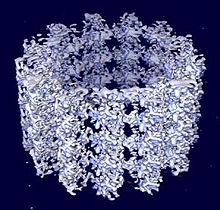[AUTHOR'S NOTE: The bulk of the original content of this article was published at Examiner.com when I wrote as the Atlanta Creationism Examiner. Unlike previous articles from that source which were only re-formatted and lightly edited, new material has been added that has developed since the article was first published.] Microtubules of the brain How does our brain really work? Are brain cells special? How do brain cells store memories? Computers are modeled after the human brain, and like humans, they have both short-term and long-term memory. For short-term memory, computer allocates space in a storage cache to "remember" information...for example, a calculator application accepts input from a user and must remember the numerical values entered, the operand (in order to know whether to add, subtract, multiply, divide, etc.) and then must store the result of the operation to be displayed as feedback. However, when the application ends or the computer is turned off, the short-term memory is wiped out. Lost forever. As far as long-term memory is concerned for computers, a storage device is required, and the information is literally written to a computer chip, hard drive, flash drive, or some other permanent medium. If you store your data "in the cloud" it only means you're using storage provided by someone else, which might be convenient, but not very secure. Literally, somewhere there must be a physical device which stores your information to be recalled and reused at a later date. So with that in mind, how does a human brain record long-term … [Read more...]
The odds against atheism
Imagine that you're playing a game of poker, five card draw. The dealer issues each player five cards, one at a time. He deals fairly, taking the top card from the shuffled deck and tossing them face down to each player in a counter-clockwise rotation as he goes around the table in order. You look at your cards and discover that you've been dealt a royal straight flush: the ace, king, queen, jack, and ten of hearts. You don't even need to discard and draw another card. You struggle to hide your excitement, knowing that the odds of drawing such a lucky hand are roughly 649, 740 to 1. This translates to a probability of success of 0.00000154, a mere fraction of one percent. Naturally, you should expect to win this hand. Even a royal straight won't be good enough to beat you. It doesn't beat the royal straight flush. Nothing does. The best another player could have done would be to draw a second royal straight flush in either diamonds, clubs or spades, splitting the jackpot with you. But the odds of two events with a probability of 0.00000154 percent occurring in the same hand of cards is considerably worse than the single rare occurrence, because the number of cards and possible winning combinations have been reduced. Furthermore, if two players in the same game drew a royal straight flush from the same deck of cards in the same hand, somebody somewhere would naturally certainly be accused of cheating. One royal flush is highly improbable; twice in the same hand absurdly so. The cards would be checked for signs of marking or tampering, and the dealer … [Read more...]


